Update, as of March 28: The comment period of this online discussion has been extended to April 5 to accommodate the CUNY-wide “Recalibration Period” (Mar 27-Apr 1).
The approximate reading time of this post is 12 minutes, not counting any audio media. This discussion is an introduction to the trajectory of music history in the West (i.e., Europe and North America) for the few hundred years our course material covers. If any of this material is review for you, this in opportunity to incorporate a layer of music to your background knowledge! If you haven’t taken a history or economics course that covers these topics, use the embedded links throughout the blog post to fill in gaps in your understanding.
Economics in a music class?
The main thing that I hope this discussion underscores or brings to light is something that runs contrary to the way we often think about music and creativity: Much music that exists in the world isn’t written for personal expression—it’s a job. The contour of a melody, the emotions conveyed by the harmony, or the instruments used aren’t necessarily an expression of the composer’s desires, just what she/he knew would keep him employed—they express the taste preferences of whoever was footing her/his bills—a patron, an executive at a record company, or audience members who buy tickets to concerts, buy albums, or stream music. And that means the history of music is often a documentation of the taste of wealthy individuals—people with the means to commission and preserve the material culture of music.
Economic factors—such as who has money, how much they have, how they spend it, and why they spend it—determine the way that music is made, what it sounds like, who listens to it, and the circumstances in which people experience music. They lurk behind all the various musical sounds we hear, and knowing a little bit of economic history can give our ears insight into the how and why behind much of the music we encounter.
There is no art without economics. Music, just as with the other arts, requires monetary support. This includes funding for obvious things like supplies (instruments and repairs, scores, paper, rehearsal space), education, and training costs. It also includes less obvious things such as some degree of financial comfort — without, for example, the stability of a warm home and food, a person is less likely to be able to devote time and energy towards making music because their attention is focused on fulfilling more basic needs. (This idea comes from Abraham Maslow’s 1943 article “A Theory of Human Motivation.”)

The patronage system
For most of the European continent’s history, the countries we think of as being “European” didn’t exist—e.g., France, Germany, Italy. Instead, the land was divided into multi-ethnic empires, city-states, and nomadic groups. Nations as we now know them were established in the late-18th and 19th centuries as a way to unify groups of people who shared a linguistic heritage and other common cultural features, along with geographic proximity. Kings existed, but they didn’t hold the real power (meaning wealth, military strength, or direct control of the land where food was produced); real power was wielded by aristocrats (noblemen with various titles: duke, viscount, baron, earl, lord, prince) or the Catholic Church.
And everyone else? The majority of the population consisted of peasants, and they worked in the fields generating the wealth of said aristocrats.

Part of the value of being wealthy and powerful is letting other people know that you’re wealthy and powerful. It creates a sense of respect, a healthy dose of fear, and a social class identity. One of the ways that the aristocracy and the Church were able to demonstrate their might was with the art that they commissioned, displayed, and controlled: they were the patrons of the arts, and the patronage system was the economic structure in which art was produced for these patrons. (A great background to the division of societies into people who produce food, rulers, and artisans/religious figures who consolidate those rulers’ power is the 1999 book Guns, Germs, and Steel by Jared Diamond).
Art (including music) wasn’t just a pleasant diversion or pastime under the patronage system—it was part of PR and image control for those in positions of power: a status symbol.
Architecture, for example, was used to demonstrate might and financial resources.

SONY DSC 


Top center: The cathedral of Notre-Dame de Paris (Catholic Church), built 1163-1345
Top right: Teatro Argentina, Rome, Italy, 1729
Bottom: Esterhazy, the Hungarian country estate of the Duke of Esterhaza, who employed the composer Joseph Haydn.
The visual arts captured a patron’s image for posterity: sumptuous attire (rich fabrics, intense colors, and intricate details) and also depictions of music making, because it was believed by members of the noble classes that musical talent and musical taste proved how worthy a person was. (Remember, most noblemen and noblewomen learned to play an instrument as a hobby.)
Center: Le Roman de la Rose (1500)
Right: Princess Henriette of France (1727-52), painted by Jean-Marc Nattier (1685-1766)
To be a musician under the patronage system meant to hold a job post at a patron’s center of power: a cathedral or an aristocratic court. This form of employment was a lifelong commitment, and a musician would earn a salary and also receive a uniform, be provided with supplies to make their art (staff paper, ink, instruments), and be housed and fed (including firewood for the winter). A musician’s duties were often extensive: a composer (with a job title like maestro di cappella in Italy, surintendant de musique or maître de musique in France, or Kapellmeister in Germany) would also be required to teach, perform, and oversee other subordinate musicians (hiring and firing). In return, the patron had final say on everything their employee did: travelling, permission to sell sheet music, and what music was made (more on that below). Johann Sebastian Bach’s contract with the town of Leipzig, where he was in charge of composing music, rehearsing music, and coordinating musicians for the town’s four churches was typical of the time: bach-duties-in-leipzig (You might choose to model your Writing 5 on Bach’s contract when you create a primary source document of your own.)
It was also often in a patron’s best interest to allow their musicians to travel and publish sheet music—the fame and respectability of their employee would reflect positively on the patron and add more prestige to their reputation.
Economics, taste, and self-expression
Music written for a patron was designed to suit the needs or taste of the patron. If the patron loves the baryton (as Joseph Haydn’s patron did), a composer will write a lot of music for the baryton (Haydn wrote 72 trios for the instrument, even though no one else was doing it anywhere in the world). If a patron loves dance music (like King Louis XIV of France), then their composers and musicians need to be really good at creating and playing dance music. If a composer writes music their patron doesn’t like, the patron will tell them not to write like that any more, and that will be the end of that.

Music written for a patron was designed to suit the needs or taste of the patron. If the patron loves the baryton (as Joseph Haydn’s patron did), a composer will write a lot of music for the baryton (Haydn wrote 72 trios for the instrument, even though no one else was doing it anywhere in the world). If a patron loves dance music (like King Louis XIV of France), then their composers and musicians need to be really good at creating and playing dance music. If a composer writes music their patron doesn’t like, the patron will tell them not to write like that any more, and that will be the end of that.
The rise of nation states and shift to free-market capitalism
We don’t live in strict patronage system any longer, and that makes it seem like musicians are free to create whatever they music they want—they don’t have to please a king or aristocrat who is their lifelong employer. Bring on the self-expression!
Not so fast…
The shifting political-economic landscape in late-18th and 19th centuries simply means that music is now treated in a different way. The musician’s role in society becomes one of selling goods that the public may or may not buy—it still all comes back to economics!
Public taste is volatile (particularly when ideas are able to spread more and more quickly, as the Internet now allows), and this means that some musicians try to suit public taste (for example, commercial jingles, soundtracks, and pop music) while others simply make what they want to make, with complete disregard to whether or not consumers like it.
“The people who don’t want your music don’t change their minds. You outlive them, if you’re lucky.”
—Philip Glass, composer (b. 1937)
Ludwig van Beethoven (1770-1832) navigated this economic transition by using both the patronage system and the emerging capitalist markets to his advantage. He threatened three Viennese aristocrats (who loved his music and loved having him in their city) with a job offer he had received to join a court outside of Vienna. Under fear of losing him, these aristocrats caved to his threat and agreed to pay him a healthy annual subsidy to remain in the city with no other strings attached. Beethoven also shrewdly published his music simultaneously in multiple countries at once—there was no such thing as copyright law at this point, so if Beethoven had sold his work to an Austrian publisher, for example, there was nothing stopping a French publisher from copying it and selling it themselves. Beethoven’s business acumen beat them to the punch and took advantage of the fact that he was well-known across Europe, with consumers everywhere clamoring for his music.
Pianist Clara Schumann (1819-96) was able to support her family of 8 children and her mentally ill husband, the composer Robert Schumann (who is the first person who’ll come up if you Google “Schumann”—not Clara) through her rigorous touring schedule. She performed widely and to great acclaim across Europe right up until her death, and this was how she navigated the free market.

A “good” job today
An ideal situation for many modern musicians is holding a steady position with either an orchestra (as a performer or conductor) or a university or conservatory (teaching composition, performance, music theory, music history, or some combination of those subjects). Although the best jobs in these fields pay quite well, there aren’t very many opportunities to go around, and these jobs aren’t 100% secure: in March 2020 the Metropolitan Opera (New York City), Winnipeg Orchestra (Canada), and Oregon Symphony all laid off their entire musical staffs due to lost revenue caused by Covid-19.
The next few paragraphs deal with orchestral performers, but the same issues are true for composers and professorships.
You can learn about the lengthy, exhausting process of preparing for orchestral auditions in this 2012 article (dorris-the-audition): how much time it takes, what a player does to prepare, how they earn a living while trying to win a job, what happens after they win a job, how few jobs there are, and how much money orchestral musicians make. It is an easy read and features Mike Tetrault, an orchestral percussionist.
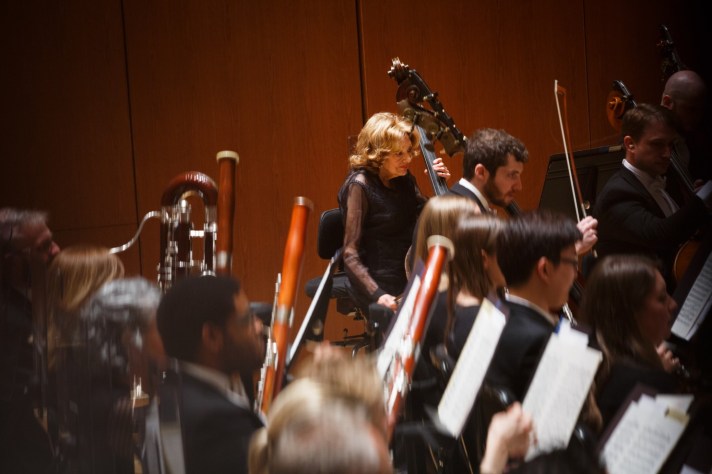
Musicians in the top US orchestras earn around $100,000 per year (depending on where the orchestra is located; players in Alabama earn less than those in Chicago, for example), and that shows how valuable and rare high quality orchestral playing skills are. There are very few top orchestras, however, and there are only 20 orchestras in the US whose average salaries are over $55,000 per year.
Demand for these jobs is high. There are 117 symphony orchestras in the US. That means there are approximately 11,700 orchestral job positions in the US, assuming each orchestra has 100 players, which is an over-estimate. But that’s not the same as saying there are 11,700 job openings there are every year, because once someone wins a good orchestral job, they hold onto it for 30-40 years. For flute players, for example, there were only 4 job openings in the US in all of 2015-16.
There are approximately 60 college-level music schools or conservatories in the US, and they typically train musicians to enter a specialized career trajectory of being an orchestral player or opera singer. Each school will graduate a class of around 150 students each year —that’s 9,000 students every year.
Add all those graduating students to the musicians who haven’t won an orchestral job yet (say, 8,975 from every previous year), plus musicians who aren’t already in the US…
Uh-oh.
The gig economy
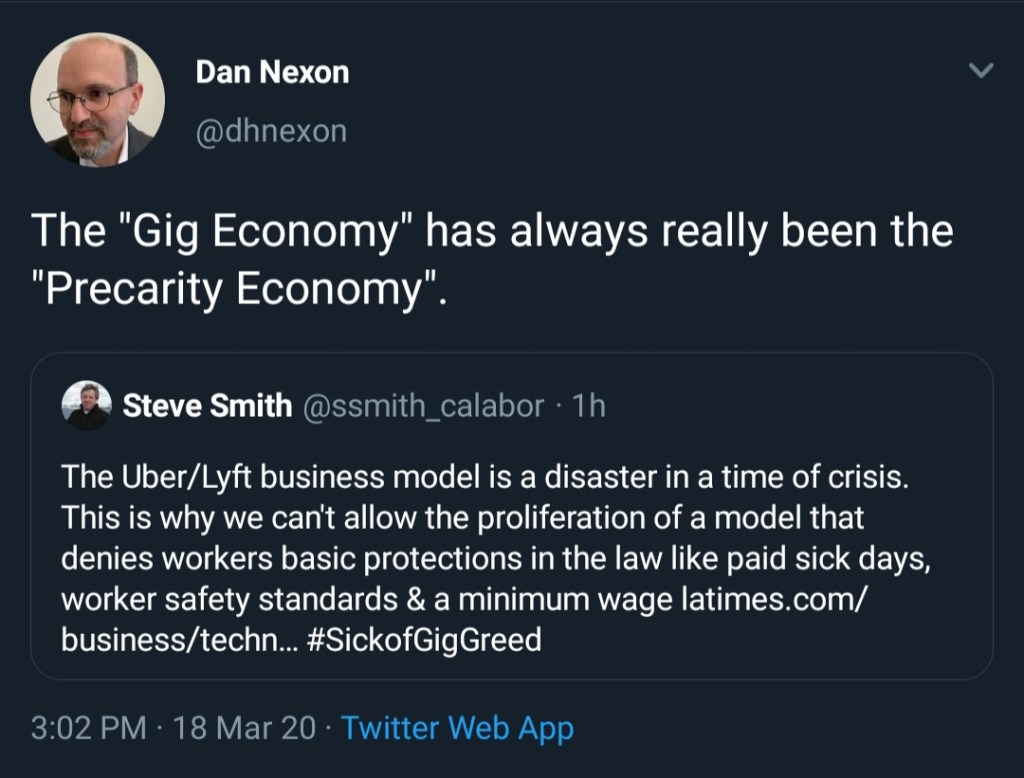
Instead of holding a single, steady job, the typical modern musician’s career is a prime example of the gig economy: cobbling together a living wage from several small revenue streams, none of which is sufficient on its own, none of which provides benefits like health insurance or retirement savings, and none of which is guaranteed to continue.
- Concerts— Musicians may be paid by a venue or concert series for their appearance, they may take home ticket sales, or their performance may be organized by a management company. A concert payment for a musician can range from $0 to $4,000, but most concert performances pay $100-750 per player. This also includes many orchestral jobs outside of the top orchestras, which are paid “per service” rather than a salary (around $40 per rehearsal and $150 per performance).
- Commissions— Composers charge commissioning fees when someone asks them to write a work. Rates depend on the length of the piece (longer = more expensive), the number of musicians (more musicians = more expensive), and how famous the composer is (more famous = more expensive). The commission fee may range from $2,000 to $100,000, depending on these factors. Often, groups of performers will form a consortium to commission a work and divide cost among all members, so that no single player has to bear the weight of the entire expensive commission themselves.
- Teaching private lessons— A musician recruits students to take individual lessons (in performance, conducting, or composition), finds space to teach in, prepares lessons for each student’s individual needs and desires, keeps students and parents happy, and organizes performance opportunities for their students. The cost of a one-hour lesson varies based on geography and teacher: $15 (in Texas and the Midwest), $60-75 (typical in NYC), $250 (for lessons with the most famous teachers in NYC).
- Teaching in community music schools— All the work of recruitment and infrastructure (and sometimes curriculum) is taken care of by the school rather than the teacher, but the teacher earns less per hour (in NYC students pay around $70, but much of it goes to the school itself and the teacher takes home around $40). There are several such schools in NYC: Brooklyn Conservatory of Music, Lucy Moses School at the Kaufman Center, Bloomingdale School of Music, and Third Street Music School. Some musicians teach at programs that offer music classes for free to students who can’t afford it otherwise: Juilliard’s Music Advancement Program (tri-state area), UpBeat (Mott Haven, Bronx), Corona Youth Music Project (Queens).
- Teaching primary education— This includes band directors, orchestra directors, and choir directors in elementary, middle, and high schools. The average NYC public school music teacher makes around $50,000 per year.
- Teaching secondary education— Most college and university instructors teach at more than one campus, and most positions are adjunct (hired just for that class or semester with no guarantee of being rehired). Some schools pay only $1,500 for a semester-long class; CUNY schools (depending on the highest degree a teacher has earned) pay up to $4,000 per class per semester (this page gives adjunct salaries by the hour).
- Grant writing — There are several foundations and government organizations that support the arts and music making, and they award money (ranging from a couple hundred dollars to millions of dollars, depending on the organization) for the creation and public sharing of artistic work via a competitive application process. Here’s a taste of what grant writing is all about.
It takes a lot of these activities to add up to a living wage, and booking one gig doesn’t guarantee that there will be more work in the future. Many musicians work “day jobs” that allow them to practice, rehearse, and gig at night: dog walker, yoga instructor, grant writer, administrative assistant, baby sitter, paralegal, plumber, or insurance salesman. Sometimes these day jobs take over, and a musician stops being a musician entirely.
Online streaming: the promised land!
You may have noticed that I left out online streaming as a source of revenue for the average classical musician working today. That’s because it typically doesn’t pay well for anyone, regardless of their musical style—the average pay is $0.0025 per play—less than a penny.
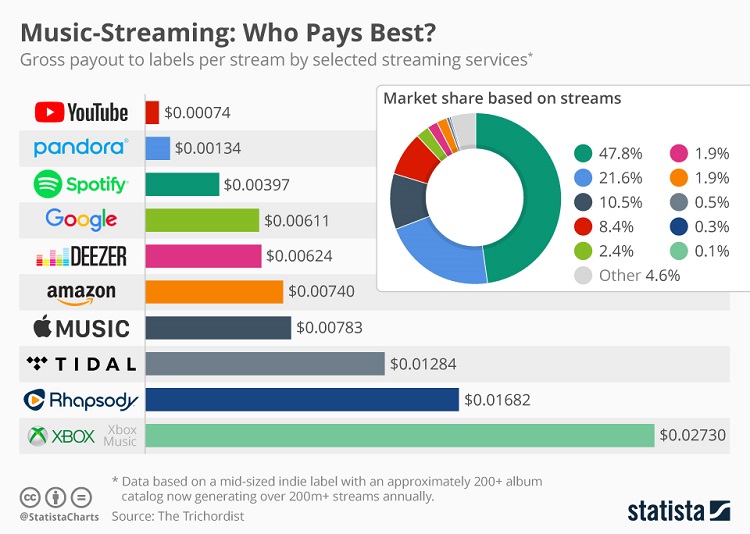
When a musician’s recordings are played on various digital platforms, we as consumers generally pay little or nothing for the experience. YouTube, Spotify, and Pandora all include advertising on their basic levels of service (free for the consumer); it seems like artists are probably compensated for their work through ad revenue and that popular artists make significant money for their efforts because so many people are listening to their music.

However, these business models pay musicians very little: Spotify pays between $0.006 to $0.0084 per play; Pandora pays either $0.0014 (non-subscribers) or $0.0025 (subscribers) per play—and depending on an artist’s contract with their record label, they’ll receive only around 40% of that money. The songwriter for “All About that Bass,” sung by Meghan Trainor, is Kevin Kadish. The song was unequivocally popular in 2014 and was played 178,000,000 times on Pandora, but for this Kadish received a check for $5,679; another songwriter whose work was played just over one million times was paid $16.89. The less-popular but still successful band La Roux earns approximately £100 for three months of streaming.
On top of that, an artist doesn’t even take home the entire $0.0025. Most of it goes to a record label, if they have one. The take-home pay is better for an independent artist, but most streaming algorithms don’t play independent artists as much or won’t let them upload their work at all.
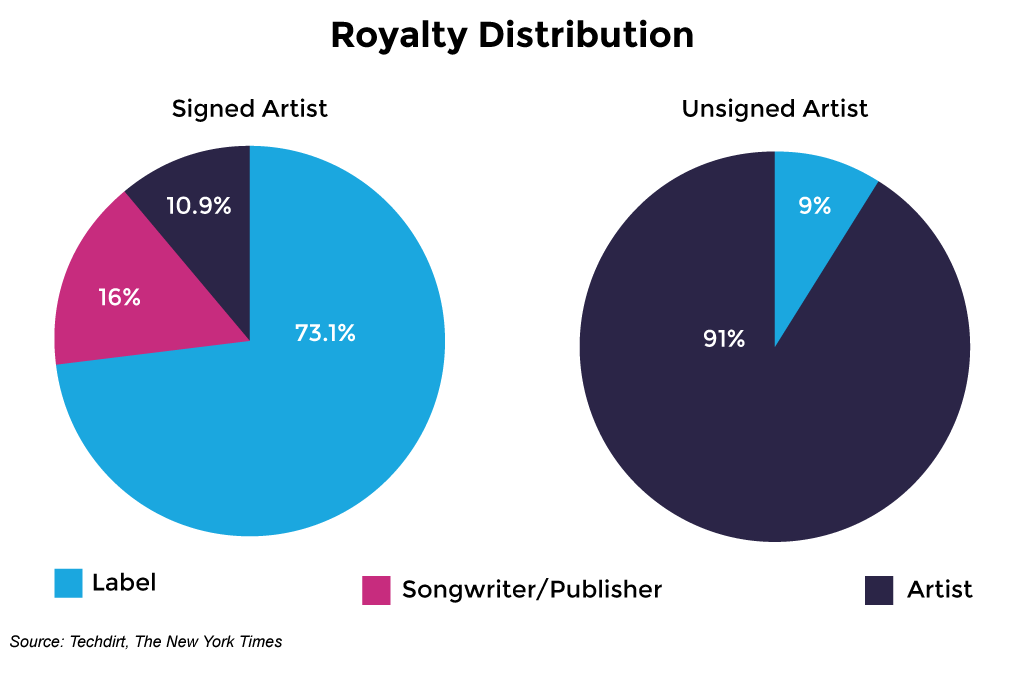
For many years, Taylor Swift didn’t include her music in Spotify’s streaming catalogue for this very reason—it devalues the art:
“Music is art, and art is important and rare. Important, rare things are valuable. Valuable things should be paid for. It’s my opinion that music should not be free.”
—Taylor Swift
It’s also worth noting that Swift is in a position of considerable privilege—she can reject the means by which less-established or less well-known artists connect with new listeners because she is already successful and also because she makes money via other avenues, such as ticket sales for her live shows.
The irony of recorded music being ubiquitous in our lives (meaning that we can’t imagine our daily activities without it and that we prize its perfection) is that it seems we value it less than ever.
Final thoughts
Making music is more complicated than just being inspired and sharing sounds with the world. Oftentimes the most financially successful musicians aren’t necessarily the most talented, the most interesting, or the most artistic—they’re the ones whose skills (musical and business skills) aligned with the economic demands of the time and place in which they live. The music we’re left with over time is the music that was created in courts and churches that had the means to fund and preserve copies of sheet music over several centuries (not necessarily the best music), and the music we come across on the radio or digital media is often also the result of a musician being aligned with record companies, management, or promoters who have the economic clout to ensure that their music is heard—again, not necessarily the best musicians.
-Dr. J.
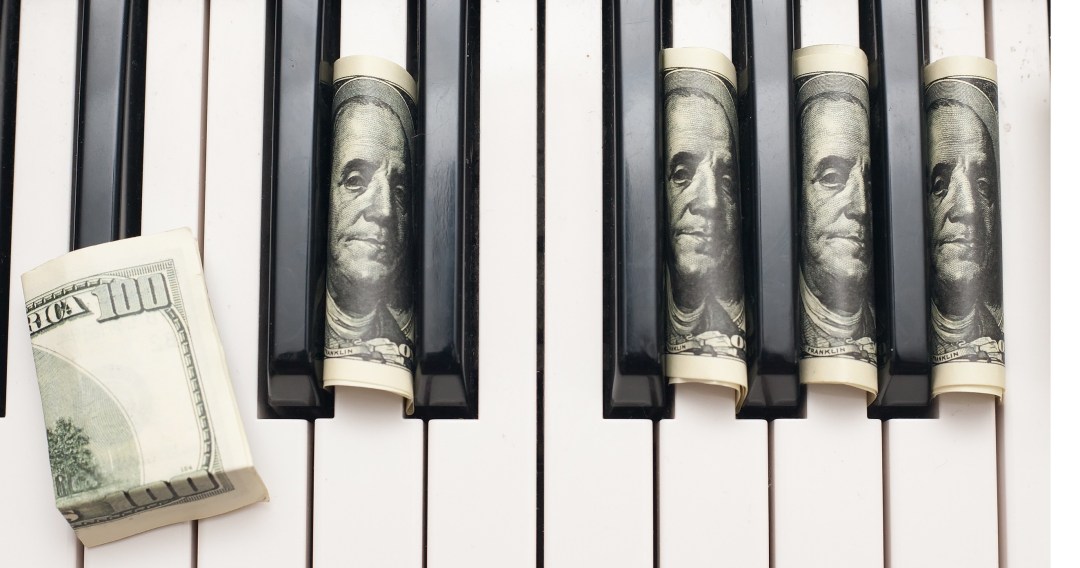
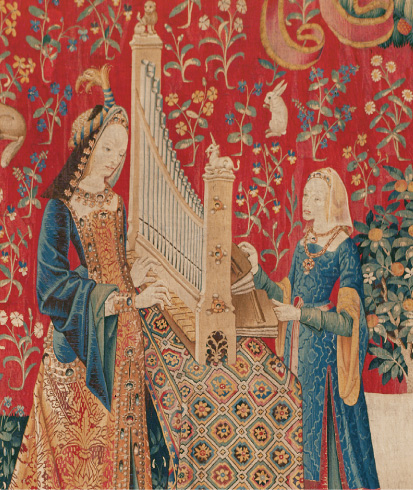
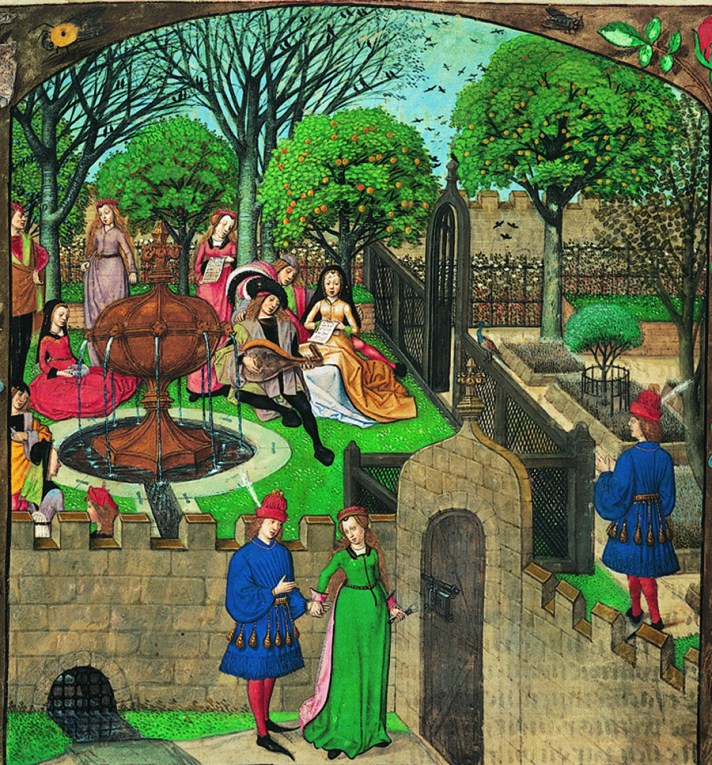
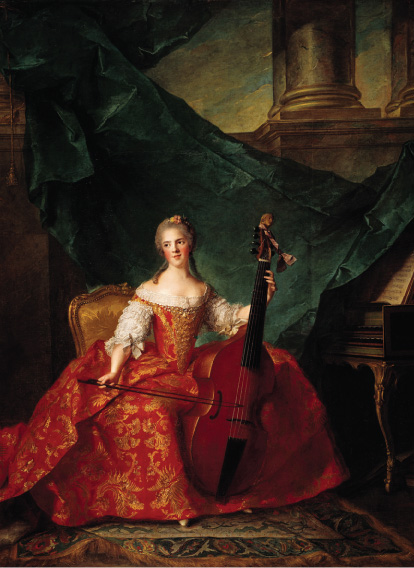


I think that music is s type of art that stands out more then other types. It’s one that does more then just catches the eye, it also does listening and bonding and to what’s the meaning behind it. Music is also connected into economics by it being played in places you but it also develops over time with the different type of styles.
LikeLiked by 1 person
Hi Frankie2147, I agree with you that music is art that stands out because all the music that you can hear around can be very different .
LikeLike
Music is even better when it’s paired with other types of art, like production/theatre (e.g. musicals). It stands out, but all arts belong together!
LikeLiked by 1 person
Hey Cardi, I agree with you. Music is definitely an art that enhances other art forms. I feel like music gives the other arts life!
LikeLike
Frankie2147, I agree that music is a form of art and that it stands out more than any other type. I really haven`t made much thought of economics and music together until this piece. Like oh boy, to pursue music as a dream, its tough.
LikeLike
I agree music is appealing since it’s creating a connection with the artist and invokes a melting pot of emotions even if the music piece doesn’t have lyrics. You can’t help but pick out an emotion to a song when listening to it.
LikeLike
I guess I never thought of musicians as starving artists, but I never really put to much thought into the process of making music until now or at least until this class. What I also did not realize is how hard it was for a musician to find a job. Do you have to be truly talented to get a job in an orchestra or symphony? Is it your pedigree? Or is it who you know?
It still astonishes me that musicians make so little money. I cannot even imagine how many musicians have stopped playing their instruments because it could not pay the bills. I guess we all have sacrificed what we love just so that we can pay the bills.
LikeLiked by 2 people
Hey ioanandrea,
I also write about how the musicians have stopped Playing their instruments just because they could not pay for bill and I have to say that is really sad to see . In the difficult time they can’t get to Chase their dreams.
LikeLiked by 1 person
Yes, indeed it is sad. We all are on hold at this moment. Whatever our dreams are, they are on hold.
LikeLike
Wow ioanandrea, these are some great questions! What I find even more fascinating is how reversed economically music has become. As Dr. J mentioned in the section “The patronage system”, many musicians were not only paid in great wages, but were also financially supported for music supplies and basic living needs. As well, many musicians were already known to come from a very wealthy background. In todays term we would refer to this as, they was swimming in cash! However now, it’s funny how many musicians are struggling to financially survive for doing something they passionately love and enjoy. Your absolutely right when saying it’s often a sacrifice, because they truly do have to decide whether to keep doing what they love, or get a job to gain financial stability.
LikeLiked by 2 people
How wonderful it would be to have the patronage system today. Having all the necessities provided including the instruments would be incredible. One could just concentrate on music and nothing else. It is insanely expensive to have a beautiful instrument of your own.
LikeLike
I know it’s definitely scary for a musician to watch their passions fall to dust. And I definitely know a lot of would be great positions completely stopped following in their dreams of music , Because it never became lucrative enough for them to sustain themselves On their music alone.
LikeLike
Musicians stop playing to pay their bills. I didn’t see that before or didn’t put too much thought into it, I have to agree that they are working and have to make sacrifices for what they love.
LikeLike
Hi Andrea. I totally agree, it’s really sad that there are so many gifted people and so little spots for them to be able to display their art. It’s true we have all sacrificed what we love to be able to make ends meet, but it must be soul crushing for those musicians who worked their entire lives towards a career and then to not be able to find a job or worse be told they aren’t good enough.
LikeLike
You can really see the way that the music over the years has change a lot. Also with the economic The fact that the musicians can not be able to play their music just because they can’t pay for it . It’s also sad to read that the musician have to have day job in order to practice . Most of the time they don’t even get to be the musicians they want to be and I think but it’s so wrong because they really worked hard . As Taylor Swift said Music is a type of art and to me , it can be rare as well.
LikeLike
It’s unfortunate that money has to be such an important factor in determining what music gets enjoyed and what music gets put to rest, but I think the creation of music isn’t bogged down by money at all. At its very core, music is still an art that rings true to listeners who appreciate the art, and there are a lot of different kinds of music.
What do you guys think about the patronage system? Do you think our modern day system is better than the historical systems in place? And if so/if not, why?
LikeLiked by 2 people
This passage has been like water, quenching a thirst of questions I’ve always had about musicians, and really how musicians get paid, and exactly how much they get payed. As someone who played one musical instrument a good portion of my early life (meaning when I was younger, I’m not that old lol) I’ve always been intrigued of how much being a pianist might make me in the music world if I decided not to pursue any other field. Welp, now I know! It’s honestly devastating to learn that many talented musicians are struggling to make decent income on music alone to financially support them. Makes you almost discouraged to even try lol.
Honestly this teaches me that if I want to continue seeing many musicians win, I have support them by buying their albums, or even going to see more orchestras.
LikeLiked by 1 person
Hey Widnie!! Definitely a question I asked myself too for years… how musicians get pay, and not only the big ones on tv also the ones that play in local places and teach music. So this one was a really good topic to be discussed, economic is present in everything we do and even though the end goal of someone is to choose a profession or vocation that they loves… is also important to know how you’re going to make a living out of it.
LikeLike
My question for you guys is after learning about how musicians are really affected economically with wages, what are some ways outside of online streaming would you suggest to increase “awareness” on different musicians and support them financially, as well as their music?
LikeLiked by 1 person
It definitely is quite upsetting that money holds such power to one’s dream of becoming a musician. And it had long been like this, that playing an instrument, creating music isn’t for their personal liking but for others? That its a job, to play the necessary needs to those that pay them. What differences will it be now, if all musicians were to play the same music in the form of who employs them? Music wouldn’t be unique then, musicians wouldn`t stand out. Imagine Bach, Mozart, and Beethoven music all sound the same. Minus there rich background. And for those who are talented but don’t have the support to create it, without a warm bed, warm meal, a healthy body what good music can be created.
Lastly, about Taylor Swift not including her music on Spotify because it devalues the art. That music is art, and art is important and rare, rare things are valuable and so music should not be free. I agree and I disagree because Talyor Swift has money, is known worldwide. And yes music should be paid, much not at all cost. If people listen if people were to like. They will pay money to buy your album, pay to attend your concert, your world tour, and that its money to your pocket. What do you guys think of Taylor Swift’s statement would you agree or disagree with her?
LikeLiked by 1 person
I completely agree with you Jenniferwei1212. I think it’s crazy how even if they were given the supplies, etc under the patronage system, they still weren’t able to play music of their choice. It all comes back to money which is sad.
LikeLike
When I read that musicians in the patronage system only make certain kind of music that favors their employers hit me hard. I thought what if the kind of music that the musician is making to please his/her employer doesn’t personally like it, does it make them dislike their job? Imagine play a piece of music that you dislike for hours a day. I feel like that makes your life miserable.
LikeLike
When reading the final thoughts section, it really hit me hard because it is very true in the modern day. Having a really good talent doesn’t always make someone famous. There are really talented singers out there, but they aren’t as famous as the other singers that aren’t as talented. I feel like visuals play a major role in this. I believe there are a lot of people that only go for the looks of a musician, making them famous.
LikeLiked by 1 person
i agree i feel like people in that industry go for the looks rather than the actual music. and i think we also play a big part in that not just the industry.
LikeLike
I totally agree ! People in this generation especially with the music world they are very materialistic instead of listening to someone actual talent
LikeLike
This is facts visuals def do play a major role but also so does promotions and connections. I feel like its not really about talent anymore and more about what sounds you can make. For example when an artist is in the studio they have access to all this software that can amplify and auto tune their voice. So the music does not sound like how the person sounds in real life. The artist also has to make ad effort to get their music out to the wold and meet the right people, it is very hard to build trust nowadays.
LikeLiked by 1 person
yes I totally agree now a days people wear all different types of outfits to perform and people sometimes take more appreciation on an artists is outfit than there actual performance. I totally agree
LikeLike
i was aware of the struggles many musicians face economically but i never actually took time to read and think about it. It sucks that musicians can’t live off doing what they love because they don’t get paid enough. I agree with widnie86251 that instead of feeling bad for them why not just try to find a way to support them and buy their albums.
Do you guys have any more ideas to help support musicians? Is there any musicians you support now that aren’t known?
LikeLike
I two ideas someone can set up a gofundme and donate that money to local musicians that are struggling or set charity events to raise money to donate to them too.
LikeLike
Hi everyone,
As a business major I know that every relates to money at the end of the day whether we like it or not. Music is one of the wealthiest industries right now, a lot of artists entering this market now days are entering more for the money than passion or even talent. Which is kind of sad because at least in the past wealthy European men were talented and made great contributions to music. This being said I don’t think all artists are in the music industry for money but at some point this is all it becomes for most of them.
There is a lot talent now days too but it’s all about marketing and what people want and can be sell to the market. The Music Industry is like any other business, you give the customer what they ask for to a price they can pay afford.
Great discussion topic
LikeLiked by 1 person
I agree because what use to be an art form is now a money-making tool for both “artist” and managers. I do also believe that people need to make a living but when money becomes the center of it all then its no longer art or a passion. At that point it becomes just a means to an end.
LikeLike
Hello everyone The troubling reality of tryin to make a living from music, is that The number of games in the industry Means the vast majority of musicians Will never earn what most people consider a reasonable income. Starving musicians knowing their odd tries to do their best to press ahead Through the stresses and exhaustion of balancing their dayjob and Forming their musical status. This is the unglorious reality that fans give little thought to when watching Up incoming new musicians.Why do u think a musical career is so hard to establish?
LikeLike
Hi everyone!!!
Music and economics is a really interesting topic. I think it’s crazy how money can limit one’s opportunity of pursuing a musical career. Also, the patronage system really stood out to me. It’s sad that even though musicians were fed, given supplies, etc they still couldn’t play music of their choice. Do you guys think musicians of modern society would work well under the patronage system ?
LikeLike
hey cassiex I don’t really think that musicians of modern society wouldn’t work with the patronage system is because of artics and musicians would express their own freedom of music other than having someone from royalty or the church telling them what music they should make for people to listen.
LikeLiked by 1 person
Music and economics is a good topic. Music over the years has drastically changed a lot. I feel like the Internet has changed the music industry in both positive and negative ways. It’s not really surprising to me that money has to be such an important factor especially to determine what music gets played and what music doesn’t. The upshot is that in many ways the Internet has made it more difficult for artists and labels, when applicable to make a decent amount of money from music sales. Music is still art in my opinion. I know a lot of talented singers but they aren’t as famous as the other singer’s .Connections has a lot to do with this. Why do you think money can limit one’s opportunity of pursuing a music career?
LikeLike
I don’t think anyone when listening to music on whatever app they listen on thinks how much the artist is actually getting payed from your listen. I feel artists now a days have to not only sell their music but themselves. If you can sell yourself correctly, you can also sell your music for example someone that has a huge following on Instagram could sell a lot of things and their music is definitely not excluded. Someone I can think of recently is an artist called Doja Cat she sold her image and in turn it sold her music, she started as a meme blew up on Twitter and did it all over again on a social media app called Tik Tok. She created music that is “memeable” meaning it’s simple and catchy and the recent push landed her interviews on late night shows and is somewhat recognizable to anyone that has social media. Whenever listening to someone’s music you picture the artist when hearing his/her voice. This is just a reality I feel like of mainstream artists, musician or not they have to sell an image when you think of Tom Cruise you imagine Mission Impossible or Topgun the same way when you see Drake you hear his music they have to sell whatever they work on or might just not work. It really isn’t all about talent its really the way you sell your self and music to the public. What do you think, do artists now days have to sell their image just as much as their music?
LikeLike
I feel like if the artist is starting out yes they have to sell their image along with their music. People look very into creators lives since they want to feel like they “connect” with their artist therefore connecting with music. I find it strange somewhat but also can understand to a certain extent.
LikeLike
This topic is really understandable because money is something that is almost a necessity to do most things. I remember hearing about how there were a lot of musician who had a tough time letting their music be known because of their financial standing. There are a lot of unknown artists who can’t afford to advertise their music and their music ends up being unseen or unknown.
LikeLike
Hi everyone. I knew a little bit about how tough it is to make money as an online content creator but for music especially it seems to be even more of a struggle. That’s why I see so many creators out there having to get sponsorships for the things they make just to make extra money to stay afloat.
My friend’s parents also do private lessons with piano and see that they are barely home at all either since they have to spend so much time teaching kids just to make a decent wage.
Overall if you have the passion for it I suppose it is worth it in the end. Even if you aren’t making a lot of money doing content online is there a way to get your name out there other to be able to gain fame online?
LikeLike
COVID is at large but lets get to it, wow I always wondered how much streams payed an artist, and the amount for one stream is not even one penny. That is so messed up and stingy like what. How can a company be so greedy, it just show you what they really are about. And records labels really be cheating their artists taking 40% of their profits and they do not even make a considerable amount off streams. The only thing they really make money off of is gigs and not even those are guaranteed. For signed artist they only get 11% of their royalties and i can’t even comprehend how that is fair its like they sign their life away. Its way better to be an independent artist even though the grind will be much harder the benefits will be even greater. How can an independent artist be successful? What are some ways that artists can be careful when signing to record labels? PARTYNEXTDOOR album just dropped and this man did his thing! Go listen to it if you dont you might CATCH CORONA but you didn’t hear that from me Lmaoooo. ITS CORONA TIME RIGHT NOW stay safe yall and wash your teeth and brush your hands. HIS ALBUM IS CALLED PARTYMOBILE.
LikeLiked by 2 people
I love this post I do wonder how much each record label gives each artist. I love your passion for this album just by reading this comment im going to give it a go and listen to the album right now. Be safe!!
LikeLike
The final thoughts section really made me think about music and how hard it is to actually make music. A successful musician doesn’t mean he has the most talent because he just has the skills that go with where they live. I found this interesting because musicians adapt to the music when’re they live and that’s where most of their success comes from.
LikeLike
It’s interesting how composers back then change so much to now. to be a compose back then you must be in the wealthy class. By playing an instrument show how much money that person has. Also with that composers and musicians oh wealthy class will perform for the kings, queens, and aristocrats of high social classes. I find it interesting that famous composers such as Beethoven can have aristocrats pay hive any amount he wants just because he is a well know composer to show how rich they are. but it’s crazy today that composers and musicians aren’t making as much money other than people who play in major concerts. Even though they are very skilled in playing their instruments they are still struggling with their pay. Do you think that composers and musicians by then would make the same amount of money that they made or would they get less?
LikeLike
Reading this made me conclude that there are many people musically gifted in different ways and in different genres but in order to be successful and make money you have to step out of your comfort zone and try new things. Many artists now a days make music because they realized that if they put out the proper content and produce what’s trending it’s a consistent money flow because people will pay for it. Back then music to me was seen as art but as we move forward it’s clear that people are following in the footsteps of others producing trending content which is smart because it’s helping them make money. There are many artists out there that are passionate about there music and they don’t get the same spotlight as some artists that are doing it to make money but sadly that’s just how things operate sometimes . Money does rule the world and people will do whatever they have to In order to make it . If money didn’t play such a huge factor do you think the artists that are actually passionate about there music would gain more attention while they pursue their dream ?
LikeLike
I think the relationship between money and music has drastically changed over the years. Now I think artists focus on how much money they make every time they perform and some artists won’t even perform if they don’t get the check that they like. I feel like back then artists performed to play the beauty of their music to make there fans happy now the music is all about money.
LikeLike
What does everyone else think do you guys think artists now perform for the check or more of their legacy and beauty of their music?
LikeLike
Hi Nicholas,
In the generation we live in, most people do it for the money. People are never content. Theres like half doing it for the check and then the other half doing it to build a legacy or express the beauty of their music. But that’s just my opinion.
LikeLike
definitely for that check! Thats why when most artist start gettin successful theyll stop making songs and move on to bigger things in the business industry. for example, beyonce, rihanna
LikeLike
It is sad that many individuals don’t have the freedom to do what they want to because every has got to survive. Someone could be super talented competing with someone that isn’t as talented but has got the network and the courage to step out of their comfort zone; and the one who will most likely come out successful would be the one who has got the network and the courage. However, they’d probably not be able to express their own music with their own colors, it will have the influence of the wealthier above. I feel like this system has attracted individuals who aren’t even that experience with music but are decent enough and will follow the wealthy people’s orders, therefore earning them more money and fame. I don’t know much about this side of economy but hopefully things get better for the real musicians who play with their own passion and colors.
LikeLike
Hi everyone,
There are many talented people in the music industry that put effort and there are those who don’t put as much effort, but entertain the people. That’s my opinion, I would like to know what you think of that? What really grab my attention was that musicians have work and they work to pay bills and leave their instruments for a while. Sacrifices are made to achieve goals, for what you want and they did this.
LikeLike
I can also agree when you think of it you don’t think of musicians as low on money or even struggling like the reg worker to pay any bills.
LikeLike
Good evening, in my opinion the music industry is so biased. Even as listeners we look at the artist looks and background at times. There are artists and musicians working as hard as a regular worker to even calculate streams to make money. I always wondered how musicians may feel and I see many turn to drugs or depression even kicks in, don’t you think they are also trying to make a living doing something they love ? or do you think its the fame and money that talks.
LikeLike
Hi bcelestain! Everyone is trying to make a living doing something they love. Who wants to do anything and be miserable? Everyone is different. Some do it because they love it and have a passion and then they’re some who do it for the fame as well as the money. Everyone has different perspectives.
LikeLike
Good Evening Everyone. Hope you all are staying saint in this panademic were going through and hopefully its over soon. I never really thought music could turn into a lifetime career especially if you’re not famous like these celebrities in our time. Reading through this post, I had no idea that musicians had it difficult .I was unaware that so many musicians struggle in-order to make ends meet. It’s sad that money really determines where you will make it in life sometimes especially in the music industry. Do you guys think the patronage system was fair or unfair to these musicians? What if in moderation the patronage still existed, would there be many musicians still?
LikeLike
wow I definitely understand why artists present a certain image, because if youre liked in the industry you will make more money. In this generation all you need to do is be liked and build up your fan base. sometimes it doesnt even matter about the art or how much effort you put into it. Do you guys think the trend thats going on will be changed? or will you always have to be liked to make money.
LikeLike
There’s always going to be great talent in music, however as long as we have a capitalistic system in place, people are going to ride trends in their music to take advantage of their 15 minutes of fame and make as much money off it as possible before they lose relevancy.
LikeLike
that’s very true especially in this time period where everyone is making the same type of music and copying other people’s style just to make themselves known or to top the charts, a lot of one-hit wonders in music now.
LikeLike
hello everyone!
nowadays we don’t have to please a king with our music but like the article said “it has to come back to economics” even know we don’t please a king, we have to please society to buy our music or just listen to it. you also don’t have to be famous to be big in the music industry, all you need is talent and help and that goes with everything in life. sometimes all you need is help from someone to get something.
LikeLike
I agree completely that the most commercially successful artist isn’t the most talented artist. If you listen to the top charted songs, a lot of it is pretty trash and follows a formula that record executives implement to stay trendy and maintain relevancy. Due to this, a lot of young artists achieve monetary success early on in their career, but their managers and executives may leave them for the next big thing when they don’t bring home the piles of money like they do before. Do you guys believe these record executives purposefully take advantage of a young, naive artist and then milk them for all they’ve got and them toss them aside?
LikeLike
Hey guys,
I think its crazy that people were never able to play what they truly wanted during the 1800’s, and they were kind of just playing to survive and support their dreams. It also sucks that nowadays thats still the case like some musicians will still go to school or their real job until they know for a fact that they’re gonna make it. The fact that even though there’s been a lot of progress people still struggle mainly when it comes to finding jobs in classical music is terrible. But the streaming industries have definitely helped a lot of artists that work hard to share their music the way they want without worrying about any outside issues, which really helps those musicians keep making some quality music.
LikeLike
Hey everyone! This post was really an eye opener for me. I really found interesting how the patronage system, had such a high regard of the quality of music, because music displayed their wealth. So the musician really had to be top notch to play. I also agree with the point about music artist being wealthy, but their music on the other hand is really not that great. Sometimes when I’m in the subway, I see people performing and they are so talented, people sometimes give a few bills, or coins if they like what they hear. Who knows maybe that’s they’re only source of income! I feel like they are the ones who need to be discovered, so they could eventually be rich and successful! What artist do you guys think is overrated?
LikeLike
I agree. There are many talented poor artists just waiting to be discovered. Some of them are even more talented than the artist that are signed to the big record companies. One artist who I feel is overrated is lil uzi vert. While I do believe he’s a talented artist for sure, there are fans who praise his work as if he walked on water or something. Fans waited years for his latest album for instance and when it finally arrived, many of them went on and on about how it was worth the wait. Honestly that wasn’t really the case. There was room for improvement but people can be blind sometimes.
LikeLiked by 2 people
something I found interesting was that music was created for patrons so they basically controlled the type of music being written and produced in that time period. aside from wealth and status, why do you guys musicians allowed patrons to control their style of music and didn’t let their creativity “roam free”?
LikeLike
Hey everyone! Hope all is well and that you are all safe. Reading this made me a bit sad that we live in a world where money holds such great power in our society and back in the 18th and 19th centuries, so much so that it can determines an artist’s artistic expression. It’s insane to think that there are artists who have worked their whole lives to play in an orchestra, endless hours of practicing, years and years in school, and probably spent a lot of money for their education, to only be met with no opportunity at the end. Even if there is an opportunity for an artist to join an orchestra, how many other musicians are lined up and ready to audition for that spot? I would be crushed and humiliated if I my lifes work lead up to one audition and then in the end I was told I wasn’t good enough. Could you even imagine?
LikeLike
Economy and music are inseparable, and early music is also listened to for the rich. Music is usually created with financial support from the rich.Economy and music are inseparable, and early music is also listened to for the rich. Music is usually created with financial support from the rich. It also reflects their taste and economic strength. Musicians also have the freedom to create through changes in their economies, and they are no longer creating for the rich.
LikeLike
Hello everyone, hope your all doing good. I never for some reason realized that musicians have to go through money problems has the rest of us. I actually know a person trying to pursue a goal in the music industry, a former co worker of mine would always tell me how difficult it is to write and create music and how expensive it is for all the equipment. He told me he spent more money on equipment and still hasn’t earned his money back from his music. But he hasn’t given up yet and still pursues it, its his calling that what he told me. So when i read how in the 1800s musicians weren’t allow to create music that their heart desires it just made me think would my friend continue creating music if he wasn’t allowed to create his own passion. Actuallly how about you guys would you rather create music that you love and enjoy or create music people tell you to do but youll get more money from it?
LikeLike
Depending on at what point of your career i feel like that effects your answer. If i was just starting out i would make music that people would want just so that i have a name established for myself and people will pay attention but later on when i have that fanbase i would create music that i love and hope that my fans would enjoy it.
LikeLiked by 1 person
Crreating music has gone from being an expression of the soul to catering to the masses. Musicians are now more so making music that they believe will go over well and sell the most records. That’s not necessarily surprising to me. Music isn’t the most reliable profession. Musicians only make money if they’re selling records, going on tour, etc. So it’s reasonable for them to look at music from a business standpoint. Lots of fans don’t see the economic side of music or thinks that it cheapens the art. I understand that point of view but I don’t agree.
LikeLike
After reading this I see that music and economics go hand and hand. The successful artists can make millions of dollars from the music industry. One question I have is would certain artist still do it if the payout wasn’t as much?
LikeLike